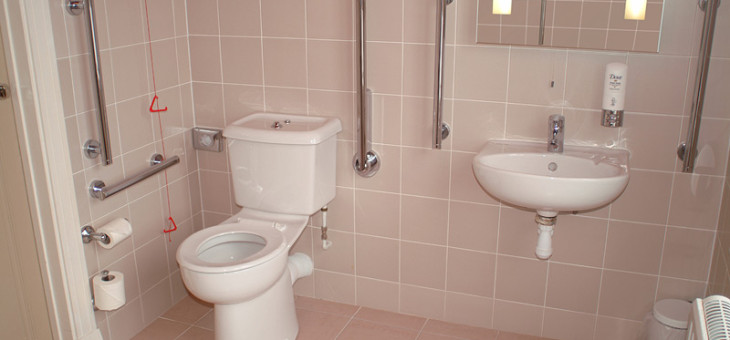Hi, I’m Sid. I worked for a Local Authority for 24 years as a grants officer until I joined Amber, Grumitt Wade Mason’s sister company which works to improve independence for people who are disabled or elderly within the home and public spaces.
Do you find it difficult to get into the bath? Are your doors too narrow for your wheelchair or is it hard for you to enter your property safely?
If you can answer yes to any of these questions, or have just reached a certain age and are finding everyday activities more difficult or dangerous, you need to know about the Disabled Facilities Grants (DFGs) that are available from your Local Authority.
These grants can pay for all or some of the work you need doing to your home to make it a safe and usable space for you.
Are there enough funds for all eligible DFG applicants?
If you meet the DFG criteria and pass the means test (called a Test of Resources or TOR), the Local Authority must pay out.
Council finance cuts don’t seem to have affected funds; however, general council cuts have reduced the manpower available to work on these projects which means it might take longer to do the work
What happens when the work begins?
If you’re using Amber to manage this process, we will deal with any queries while the work is going on. On completion, I make a final inspection to check that all work is indeed complete and satisfactory before preparing and sending the final account to the council (with a copy to the client).
The council will make the grant payment to the contractor once they agree that the works have been completed to a satisfactory standard that meets the specification.
5 steps: The Disabled Facilities Grant process
To apply for a DFG you must be disabled or capable of being registered as such. As with any official grant application there is a standard process to follow.
- Ask your county council for an Occupational Therapist (OT) Assessment, or when you are next with your doctor, ask your doctor to refer you to the OT.
- After assessment, if the OT believes you need an adaptation to your property, whether you rent or own it, they will contact your local council recommending you for grant assistance.
- You will (eventually) get a visit from the grants officer to confirm your eligibility.
- If the grants officer is satisfied that you are eligible, they will arrange a Test of Resources (TOR). Make sure you give complete and accurate information if you have a preliminary TOR. If you change any of the information you have given after completing the form this may affect how much you need to pay towards the works. However, many applicants pay no contribution at all.
- The grants officer will confirm which works recommended by the OT (usually all) will get grant funding.
At this point, you may wish to appoint someone like me to act for you, providing drawings, a specification and, once approved, obtaining tenders from 3 contractors.
After the tender has been checked, a tender report goes to the council (and a copy to the client) for grant approval. Once you have received grant approval, the grant aided works can begin.
What next?
- Need an extension for a home adaptation? Find out about our Loft Conversions & Extensions
- Planning a construction project? Let us help you with DDA (Disability Discrimination Act) Access Audits
- Read our case study of a disabled adaptation and extension in East Grinstead


Comments are closed.